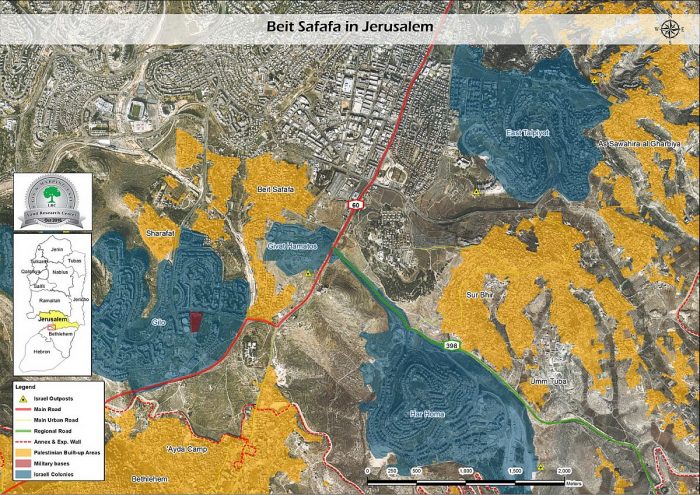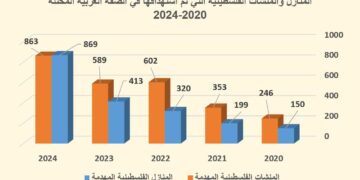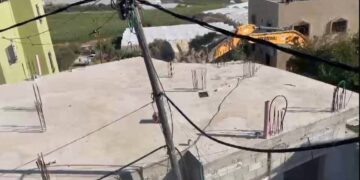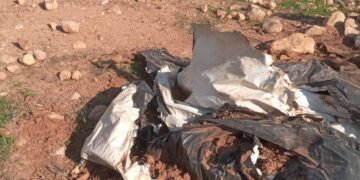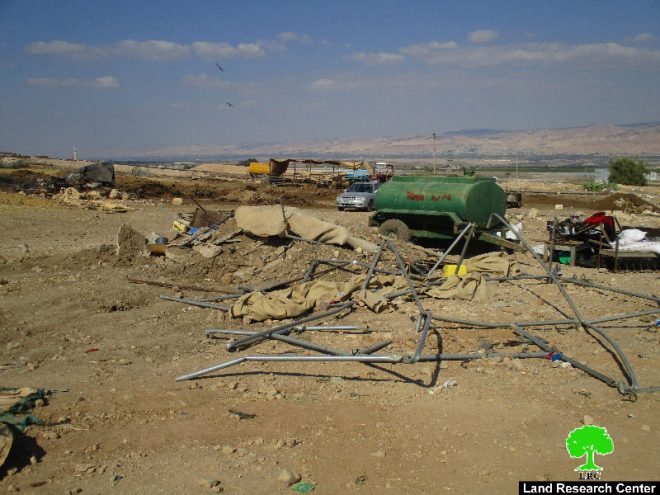On September 27, 2016 the dozers of the Israeli occupation municipality demolished part of the Mediterranean Restaurant that is located in the town of Beit Safafa, south Jerusalem city on the claim of unlicensed construction. The restaurant is reported to be owned by citizen Imad Ahmad Burqan, who didn’t want to talk much about the demolition, fearing that customers will not come in as it happened with him after the first demolition took place.
As for the second demolition, Israeli policemen accompanied by a dozer arrived at the place and embarked on demolishing an annexed part to the restaurant, which was previously demolished on the claim of unlicensed construction. The reason behind annexing the new part is due the increase of customers. The owner, thus, added a 140m2 dining room on a plot that is relative to the restaurant.
It is reported that the force arrived to the location at noon and evacuated the workers from the structure before bringing the annexed part down. The demolition lasted for an hour and half. Land Research Center on January 07, 2016 documented the demolition part of Burqan's restaurant, which was claimed unlicensed. For more details, please visit the (LINK)
About Beit Safafa:
It is 6km to the southeast of Jerusalem city. The town is edged by the occupied territories of 1948 from the north, Sharafat village from the west, Talpiyot colony from the east and Bethlehem from the south. Beit Safafa has a total population of 20,000 people until 2008, who live on 866 dunums of buit-up area out of the 3259 dunums total area.
Israeli colonies confiscated 920 dunums from the town's lands as follows:
- Har Homa: it was established in 1977 and is now inhabited by 1125 colonists. It confiscated 170 dunums from Beit Safafa.
- Givat Hamatos: it was established in 1991 and confiscated 284 dunums form the town.
- Gilo: it was established in 1971 and is now inhabited by 27569 colonists. It confiscated 466 dunums from the town.
Land Research Center LRC sees that demolitions contradict with all of the International conventions and Humanitarian laws including:
- Article 17 of the (1948) Universal Declaration of Human Rights stating: “Everyone has the right to own property alone as well as in association with others. No one shall be arbitrarily deprived of his property.”
- Section ‹G› of article 23 of the (1907) The Hague Conventions asserting: “In addition to the prohibitions provided by special Conventions, it is especially forbidden to destroy or seize the enemy's property, unless such destruction or seizure be imperatively demanded by the necessities of war.”
- Article 53 of the Geneva Fourth Convention (1948) declaring: “Any destruction by the Occupying Power of real or personal property belonging individually or collectively to private persons, or to the State, or to other public authorities, or to social or cooperative organizations, is prohibited, except where such destruction is rendered absolutely necessary by military operations.”
- Section 1, Article 11 of the International Covenant on Economic, Social and Cultural Rights (1966): “The States Parties to the present Covenant recognize the right of everyone to an adequate standard of living for himself and his family, including adequate food, clothing and housing, and to the continuous improvement of living conditions. The States Parties will take appropriate steps to ensure the realization of this right, recognizing to this effect the essential importance of international co-operation based on free consent."
Prepared by
The Land Research Center
LRC

